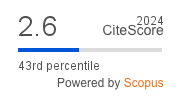Procedural Content Generation for General Video Game Level Generation
DOI:
https://doi.org/10.4114/intartif.vol24iss68pp33-36Keywords:
Procedural Content Generation for Video Games, Level Generation, Machine Learning, Computational IntelligenceAbstract
With the passage of time, video games are becoming more complex, and their development incurs greater
time and cost. The creation of video gaming content such as levels, maps, textures and so on represent a large
part of the overall cost of game development. Procedural Content Generation (PCG) is a method of generating
content via a pseudo-random process. Level generation has been the most signicant and oldest problem in the
PCG domain. The majority of the PCG level generators are specic to a particular game, content is generated
only for a suited single type and these generators are evaluated mostly by computational metrics, user studies
and tness functions. Considering, the grand goal of general Articial Intelligence, it would be benecial to sculpt
solutions that are applicable to a general set of problems. For the level generation problem, this can be achieved
by constructing a level generator that generates levels for a set of games and not explicitly for a single game. In
this research, we have created four dierent type of generators for the GVG-LG framework. The generators follow
a distinct path and are able to solve multiple problems related to PCG including dynamic diculty adjustment,
creation of intelligent controllers, creating aesthetically appealing levels and using patterns as objectives for level
generation. In addition, we evaluated all the generators using a variety of techniques. The experimental results
show promising results and represent our attempt at general video game level generation.
Downloads
Metrics
Downloads
Published
How to Cite
Issue
Section
License
Copyright (c) 2021 Iberamia & The Authors

This work is licensed under a Creative Commons Attribution-NonCommercial 4.0 International License.
Open Access publishing.
Lic. under Creative Commons CC-BY-NC
Inteligencia Artificial (Ed. IBERAMIA)
ISSN: 1988-3064 (on line).
(C) IBERAMIA & The Authors









